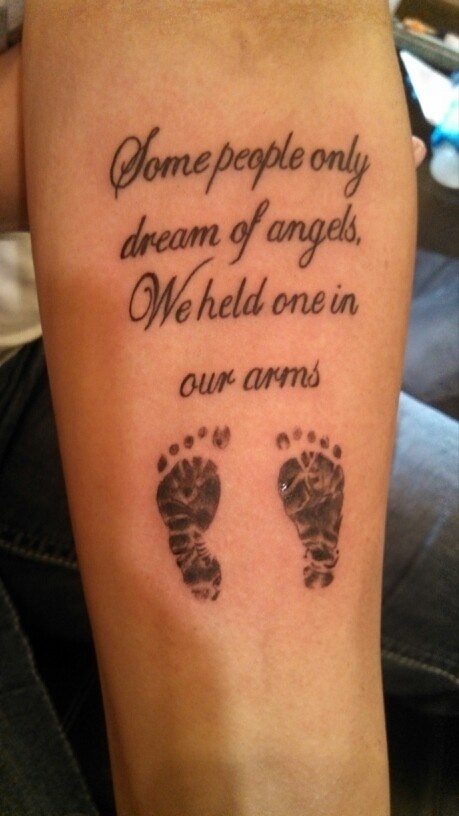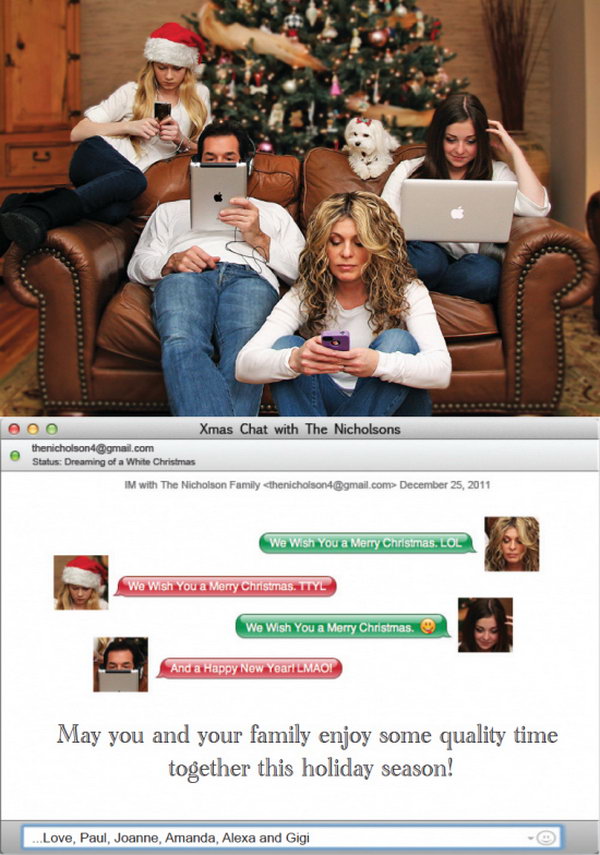Table of Content
Financial technology is breaking down barriers to financial services and delivering value to consumers, small businesses, and the economy. Financial technology or “fintech” innovations use technology to transform traditional financial services, making them more accessible, lower-cost, and easier to use. I do a lot of work with the Administrative Office of the Courts, our central body doing civic education and outreach to high schools, because I want college and high school students and law students to have an experience where they get a chance to talk to a judge. So my goal is certainly not just getting to one segment of the population, but it's making decisions accessible to whoever's interested in reading them.

The guidance will maximize net benefits and reduce the burden on the public by clarifying the legal standards applicable to religious discrimination claims, presenting typical scenarios in which religious discrimination may arise, and providing guidance to employers on how to balance the needs of individuals in a diverse religious climate. The guidance is not being issued because of any retrospective review. Notwithstanding that the legal standard for undue hardship is “more than a de minimis cost,” employers may choose voluntarily to incur whatever additional operational or financial costs they deem appropriate to accommodate an employee’s religious need for scheduling flexibility. Susan and Roger file charges alleging denial of religious accommodation. The employer will probably be unable to show that allowing Susan to display a religious message in her personal workspace posed an undue hardship, unless there was evidence of disruption to the business or the workplace which resulted.
· NOTE TO EEOC INVESTIGATORS ·
The lists do not show all contributions to every state ballot measure, or each independent expenditure committee formed to support or oppose a state candidate, only those committees that have raised $1,000,000 or more and have at least one contributor of $10,000 or more. Below are lists of the top 10 contributors to committees that have raised at least $1,000,000andare primarily formed to support or oppose a state ballot measureora candidate for state office in the November 2022 general election. Rules on Conflict of Interest Codes Information on what a conflict of interest code is, how to update them, and who is required to be listed.

Employees who seek to proselytize in the workplace should cease doing so with respect to any individual who indicates that the communications are unwelcome. Shortly after the terrorist attacks on September 11, 2001, Ihsaan came to work and found the words “I’m tired of you Muslims. Because of the timing of the statement and the direct physical threat, this incident, alone, is sufficiently severe to create an objectively hostile and/or abusive work environment. Title VII prohibits discrimination on a protected basis “with respect to . Compensation, terms, conditions, or privileges of employment,” for example, setting or adjusting wages, granting benefits, and/or providing leave in a discriminatory fashion. V – Related forms of discrimination, such as discrimination based on national origin, race, or color, as well as retaliation.
SPECIAL SUPPLEMENTS
Patricia alleges she was terminated from her job as a steel mill laborer because of her religion after she notified her supervisor that her faith prohibits her from wearing pants, as required by the mill’s dress code, and requested as an accommodation to be permitted to wear a skirt. Management contends that the dress code is essential to the safe and efficient operation of the mill and has evidence that it was imposed following several accidents in which skirts worn by employees were caught in the same type of mill machinery that Patricia operates. Because the evidence establishes that wearing pants is truly necessary for safety reasons, the accommodation requested by Patricia poses an undue hardship. George, a manager in an accounting firm, is an atheist who has frequently been heard to say that he thinks anyone who is deeply religious is a zealot with his own agenda and cannot be trusted to act in the best interests of the clients. George particularly ridicules Debra, a devoutly observant Jehovah’s Witness, and consistently withholds the most desirable assignments from her. He denies her request for a promotion to a more prestigious job in another division, saying that he can’t let her “spread that religious poppycock any further.” Debra files a religious harassment charge.
By the same token, employers who unreasonably request unnecessary or excessive corroborating evidence risk being held liable for denying a reasonable accommodation request, and having their actions challenged as retaliatory or as part of a pattern of harassment. When an employer requests additional information, employees should provide information that addresses the employer’s reasonable doubts. For example, written materials or the employee’s own first-hand explanation may be sufficient to alleviate the employer’s doubts about the sincerity or religious nature of the employee’s professed belief such that third-party verification is unnecessary.
Mobile Menu Overlay
Rick repeatedly tells John that he is practicing a false religion, and that he should study Mormon literature. Despite John’s protestations that he is very happy with his religion and has no desire to convert, Rick regularly leaves religious pamphlets on John’s desk and tries to talk to him about religion. After asking Rick to stop the behavior to no avail, John complains to their immediate supervisor, who dismisses John’s complaint on the ground that Rick is a nice person who believes that he is just being helpful. If the harassment continues, the employer is liable because it knew, through the supervisor, about Rick’s harassing conduct but failed to take prompt and appropriate corrective action.

Joanne, a retail store clerk, is frequently minutes late for her shift on several days per week when she attends Mass at a Catholic church across town. Her manager, Donald, has never disciplined her for this tardiness, and instead filled in for her at the cash register until she arrived, stating that he understood her situation. On the other hand, Yusef, a newly hired clerk who is Muslim, is disciplined by Donald for arriving 10 minutes late for his shift even though Donald knows it is due to his attendance at services at the local mosque. While Donald can require all similarly situated employees to be punctual, he is engaging in disparate treatment based on religion by disciplining only Yusef and not Joanne absent a legitimate nondiscriminatory reason for treating them differently. Darpak, who practices Buddhism, holds a Ph.D. degree in engineering and applied for a managerial position at the research firm where he has worked for ten years. He was rejected in favor of a non-Buddhist candidate who was less qualified.
Far Cry and Middle-Earth headline PS Plus Extra and Premium games for December 2022
Particularly well known was a case involving a dark-web site called “Welcome to Video,” which had facilitated some 360,000 downloads of sexually exploitative videos of children to 1.28 million members worldwide using bitcoin. To that point, the CFPB issued new guidance to credit-reporting agencies Thursday about omitting what it called "junk data" from credit reports. Republican Sen. Cynthia Lummis, meanwhile, said the CFPB "needs the same Congressional oversight as every other government agency."

Public Officials and Employees Rules Resources for public officials and employees about ethics training, gifts, conflicts of interest and other rules every public servant must follow. Conflicts of Interest Rules Learn what constitutes a conflict of interest and how to determine if someone should be disqualified from participating in a governmental decision. This material may not be published, broadcast, rewritten, or redistributed. Quotes displayed in real-time or delayed by at least 15 minutes. However, the CMA has barely discussed the potential for Microsoft’s entrance into mobile gaming as part of its investigation and is instead largely focusing on console gaming, which Microsoft argues is an increasingly smaller part of the overall market. In a graph posted at Microsoft’s Activision Blizzard acquisition site, the company depicts the entire gaming market as worth $165 billion in 2020, with consoles making up $33 billion , PCs at $40 billion , and mobile gaming at $85 billion .
Jenny requests that she be excused from daily employer-sponsored Christian prayer meetings because she is an atheist. Her supervisor insists that she attend, but she persists in her request that she should be excused and explains that requiring her to attend is offensive to her religious beliefs. She takes her request to human resources and informs them that requiring her to attend these prayer meetings is offensive to her religious beliefs. Despite her supervisor’s objections, the human resources department instructs the supervisor that in the circumstances no undue hardship is posed and he must grant the request. Motivated by reprisal, her supervisor shortly thereafter gives her an unjustified poor performance rating and denies her requests to attend training that is approved for similarly situated employees.
A religious accommodation is an adjustment to the work environment that will allow the employee to comply with his or her religious beliefs. The religious organization exemption is not limited to jobs involved in the specifically religious activities of the organization. Has been interpreted to include the decision to terminate an employee whose conduct or religious beliefs are inconsistent with those of its employer.”Some courts have held that the religious organization exemption can still be established notwithstanding actions such as holding oneself out as an equal employment opportunity employer or hiring someone of a different religion for a position. See, e.g., Campos v. City of Blue Springs, 289 F.3d 546 (8th Cir. 2002) (holding that evidence supported finding of religiously motivated constructive discharge based on plaintiff’s Native American spiritual beliefs); EEOC v. Univ. of Chi.
Rashid, a janitor, tells his employer on his first day of work that he practices Islam and will need to pray at several prescribed times during the workday in order to adhere to his religious practice of praying at five times each day, for several minutes, with hand washing beforehand. The employer objects because its written policy allows one fifteen-minute break in the middle of each morning and afternoon. Rashid’s requested change in break schedule will not exceed the 30 minutes of total break time otherwise allotted, nor will it affect his ability to perform his duties or otherwise cause an undue hardship for his employer. Harvinder, a Sikh who works in a hospital, wears a small sheathed kirpan strapped and hidden underneath her clothing, as a symbol of her religious commitment to defend truth and moral values. When Harvinder’s supervisor, Bill, learned about her kirpan from a coworker, he instructed Harvinder not to wear it at work because it violated the hospital policy against weapons in the workplace.

Nasreen explains to her manager that wearing the hijab is her religious practice and continues to wear it. She is terminated for wearing a hijab over her manager’s objection. As a result, the airline’s refusal to accommodate her and its subsequent decision to terminate her violate Title VII. In addition, if the commercial airline had denied Nasreen the position due to perceptions of customer preferences about religious attire, that would also be disparate treatment based on religion in violation of Title VII, because it would be the same as refusing to hire Nasreen because she is a Muslim. The employee should generally be accommodated in his or her current position if doing so does not pose an undue hardship.For example, if a pharmacist who has a religious objection to dispensing contraceptives can be accommodated without undue hardship by allowing the pharmacist to signal a coworker to assist customers with such prescriptions, the employer should not choose instead to accommodate by transferring the pharmacist to a different position. If no such accommodation is possible, the employer needs to consider whether lateral transfer is a possible accommodation.The employer cannot transfer the pharmacist to a position that entails less pay, responsibility, or opportunity for advancement unless a lateral transfer is unavailable or would otherwise pose an undue hardship.
Ct. at 2033 (holding Title VII prohibits failing to hire an applicant in order to avoid accommodating the applicant’s religious practice, whether or not the applicant informed the employer of the need for an accommodation). Coll., 626 F.2d at 486 (if evidence disclosed that the college “in fact” did not consider its religious preference policy in determining which applicant to hire, section 702 did not bar EEOC investigation into applicant’s sex discrimination claim). “For the purposes of this subchapter … he term “religion” includes all aspects of religious observance and practice, as well as belief.” 42 U.S.C. § 2000e. See, e.g., Union Independiente, 279 F.3d at 57 (fact that employee initially “objected only to certain membership requirements” and “voiced his opposition to any form of union membership after UIA agreed to accommodate him with respect to each practice he had identified” gave rise to jury issue on sincerity). See Dediol v. Best Chevrolet, Inc., 655 F.3d 435, 443 (5th Cir. 2011) ; Dixon v. Hallmark Cos., 627 F.3d 849 (11th Cir. 2010) (analyzing sincerity of religious belief only with respect to failure-to-accommodate claim, not with respect to discriminatory termination claim). Employers can help reduce the risk of retaliation claims by carefully and timely recording the accurate business reasons for disciplinary or performance-related actions and sharing these reasons with the employee.

Kim, a server at a restaurant, informed her manager that she would not be able to join other waitresses in singing “Happy Birthday” to customers because she is a Jehovah’s Witness whose religious beliefs do not allow her to celebrate holidays, including birthdays. There were enough servers on duty at any given time to perform this singing without affecting service. If Kim files a Title VII charge alleging denial of religious accommodation, the EEOC will find cause because the restaurant could have accommodated her with little or no expense or disruption.
























